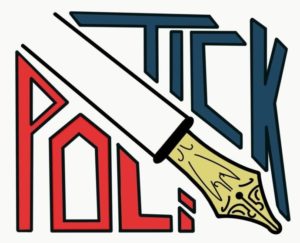Fleetwood Mac, Henry Ford, and labor unions; saving the supply chain
How the supply chain crisis is being fixed
November 2, 2021
“And if you don’t love me now, You will never love me again, I can still hear you saying, You would never break the chain.”
When mentioned, the supply chain crisis almost invariably evokes Fleetwood Mac’s The Chain. While this might just be a quirk of my mind, perhaps this song about perseverance through lost love will get the country back on track.
The sheer amount of causes one could attribute to the supply chain shortage could fit into an idle shipping container in San Francisco bay. The one thing that should be brought to the center, however, is the labor shortage.
As of late, there have not been enough workers to fuel the supply chain. For example, Susan Caminiti of CNBC writes that now, “More than 70 container ships at ports in Los Angeles and Long Beach are unable to unload goods because of a shortage of workers.” In total, the labor force participation rate, or the percentage of the working-age population that is either employed or actively looking for work (thank you, Mr. Bordelon), is down roughly by two percentage points since the beginning of the pandemic. That is 4.6 million workers. Why?
Many cite the risk of going back to work. Wages are not attractive enough for people to potentially expose themselves to COVID-19, especially in shipping warehouses or manufacturing facilities, where the work can be back-breaking. Workers here are the power behind the supply chain. A study from the University of California, San Francisco done this past February found that being a packaging and filling machine operator was the second most fatal job to have during the pandemic. Refusing to work like this for little pay is practical, not lazy. If employers want staff, they must pay them.
Good wages have been used to attract workers since the days of Henry Ford. His factories paid $5 per day and promised an 8-hour workday, which translates to roughly $17 per hour today. During the present labor shortage, employers have used higher wages to attract more employees, says Josh Bivens of the Economic Policy Institute. This does not just benefit employees, though. Harvard University researchers Emma Harrington and Natalia Emanuel found that “raising wages by $1 increases productivity by more than $1, giving the firm an incentive to pay more”. They also found that higher wages decrease turnover, which suggests that businesses can find and keep employees if they have higher wages. This is exactly why Henry Ford paid as well as he did back in 1914, and it is what we must do right now. With an increase in workers in the shipping and manufacturing industries, the supply chain can be rebuilt.
Organized labor unions are attempting to remedy the abuses of large corporations. Lots of people with jobs are being mistreated. For example, over 10,000 John Deere workers went on strike this October. Their reason? Michael Sainato of The Guardian reports that “workers have been forced to work overtime consistently,” and a new labor contract proposed before the strike included “cuts to post-retirement healthcare, inadequate wage increases and inadequate pension benefits”. All the while, the company has recorded record profits. No sane person could possibly blame the workers for refusing to tolerate this, besides John Deere CEO John May, whose salary has increased by 160% since the onset of the pandemic.
If companies like John Deere continue to ignore the demands of the worker, more strikes will happen, further incapacitating American manufacturing and the supply chain. So far, 1,400 Kellogg’s workers have joined the John Deere strikers in “striketober”. Overall, there have been 40 recorded strikes in October alone, finds Cornell University’s tracker. A spokesman for the AFL-CIO, the largest labor union in the nation, says that “For too long they’ve been called essential, but treated as expendable, and workers have decided that enough is enough.” Labor is industry’s most valuable resource; it ought to be treated that way. With luck, “Striketober” should spook companies into raising pay.
Now what does this folly have to do with Fleetwood Mac? Well, it is all about love. At the end of the day, workers are people, profits are not. Workers are not lazy for avoiding hazardous working conditions, nor are they greedy for wanting to be paid more. They just want to look after their families. Above all else, what this pandemic should teach us is compassion. If higher wages come at the cost of lower incomes for the wealthiest among us, so be it. If better treatment of workers bucks the status quo, so be it. In my view, these are necessities to fixing the supply chain crisis. By listening to workers, we will never break the chain.

